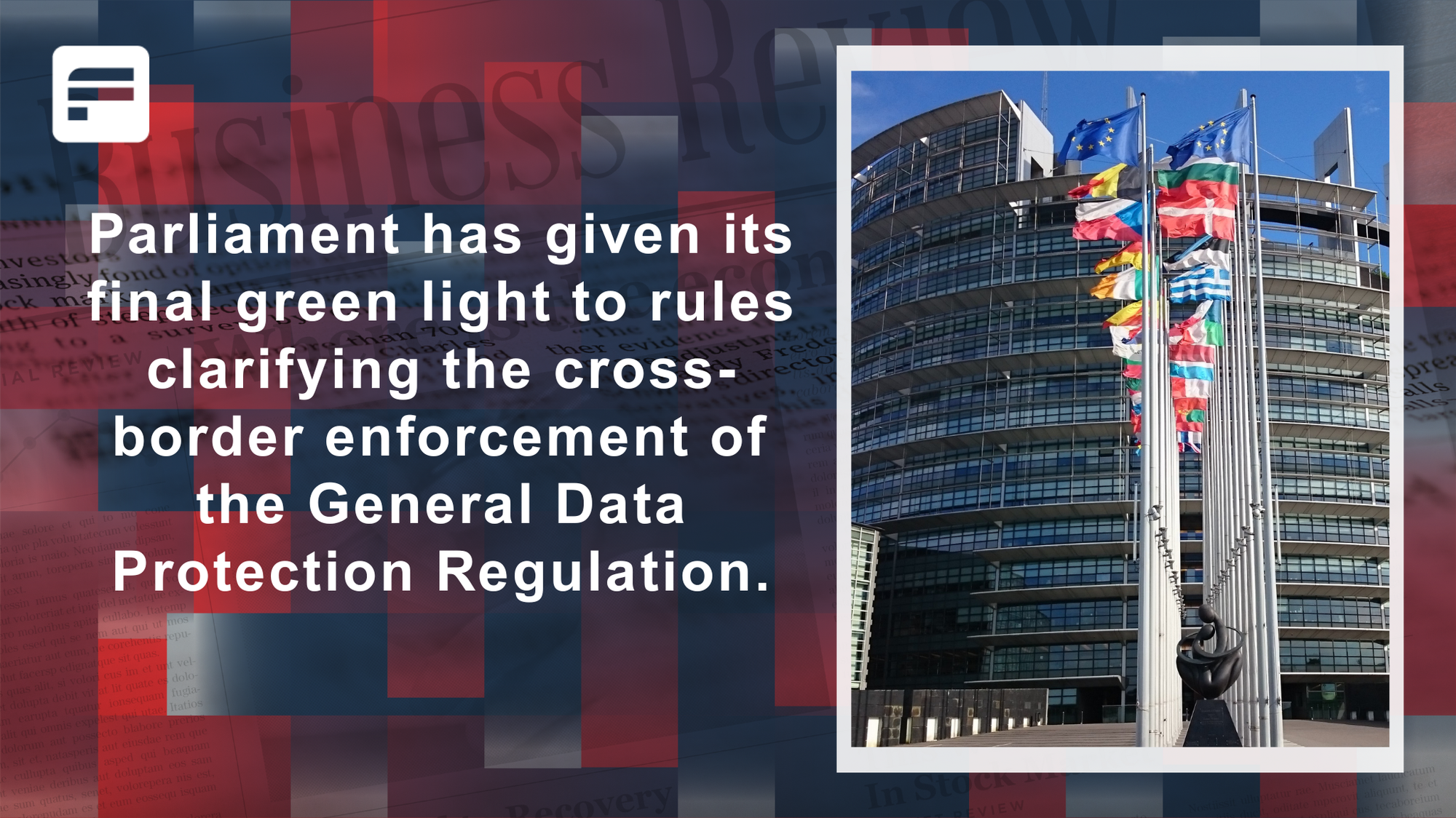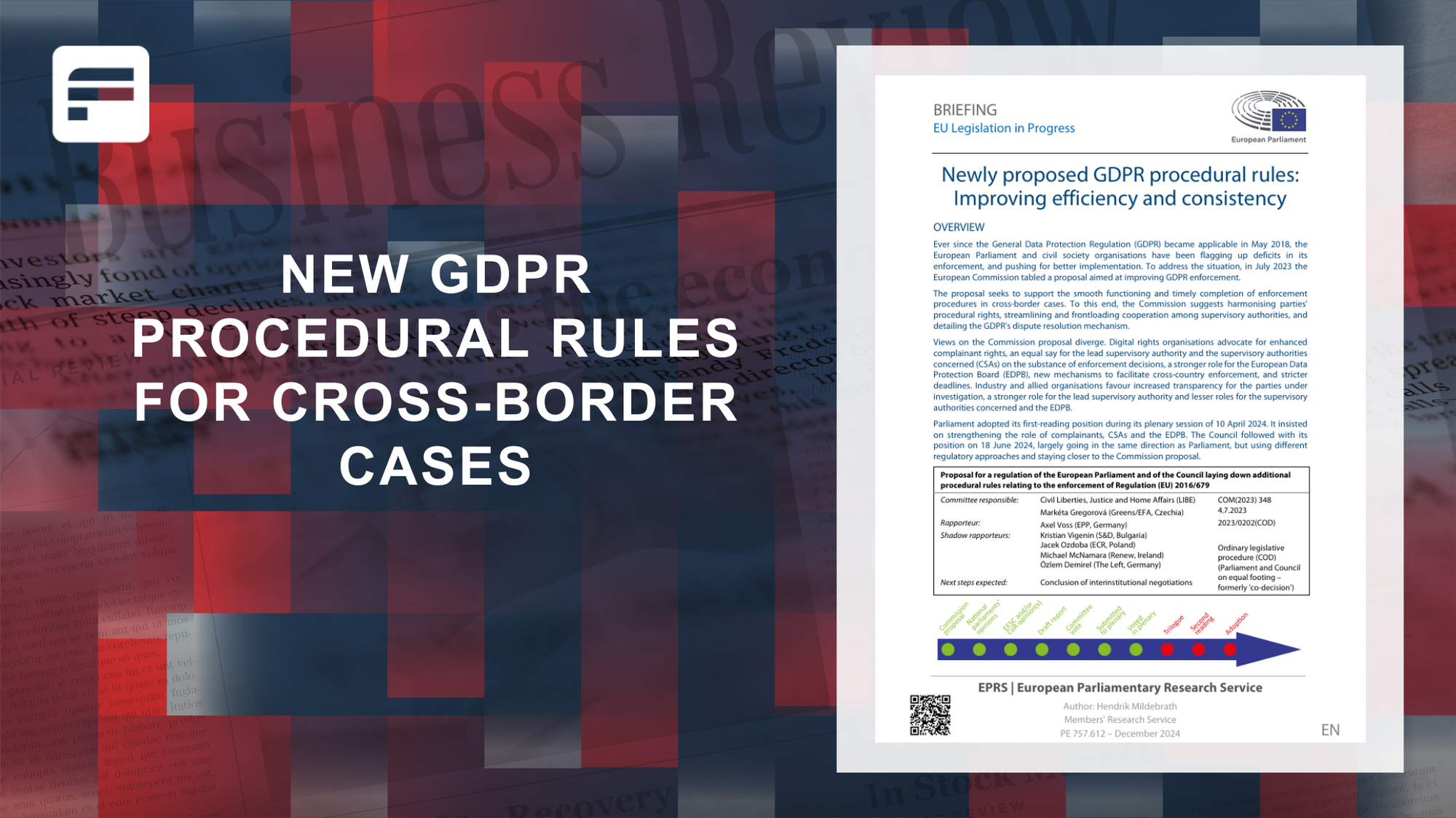- About
- Membership
- Knowledge Hub
- Economic Insights
- Innovation
- Regulatory Affairs
- Data Governance Act
- Data Act
- European Single Access Point
- Data Protection & GDPR
- Legitimate Interest
- Competitiveness Compass
- Single Market Strategy
- Open Data & Public Sector Information
- Anti-Money Laundering
- Corporate Sustainability Reporting Directive
- Trade Credit & Access to Finance
- Digital Company Law
- Corporate Due Diligence
- Open Finance
- Showcase
- Training
- Webinars
- Media
- Collaborations
- Members Login
- Board Login
- Blog
Economy · 28. October 2025
ces are often opaque, with little data available on the payment behaviour of EU businesses. The inclusion of payment practices in the Corporate Sustainability Reporting Directive (CSRD) is expected to bring more transparency to payment performance, potentially improving payment culture in Europe and delivering benefits for both suppliers and reporting companies.
Economy · 24. October 2025
Global insolvencies are projected to increase by 5% in 2025 before declining by 3% in 2026, marking an upward revision from the April 2025 Outlook.
EU Newsletter · 23. October 2025
The 2026 Work Programme, titled “Europe’s Moment of Independence”, strengthens the Commission’s core priorities by boosting competitiveness, promoting clean and digital innovation, consolidating the European social model, and ensuring collective security.
Economy · 22. October 2025
The ability to collect, process, score and distribute data is central to our business model - but so is the responsibility to manage legal, reputational and regulatory risks tied to that data.
EU Newsletter · 21. October 2025
The European Parliament has announced a provisional agreement with the Council of the EU to improve the enforcement of the General Data Protection Regulation (GDPR) in cross-border cases.
FEBIS · 16. October 2025
Late payments were also seen as a major obstacle to investment and growth, leading to delayed projects, lost opportunities, and reduced competitiveness.
EU Newsletter · 16. October 2025
Recent assessments have highlighted shortcomings in the enforcement of the European Union's General Data Protection Regulation (GDPR). These include lengthy procedures, divergent practices, and functional flaws.
EU Newsletter · 15. October 2025
With 17 votes for, 6 against and 2 abstentions, the Legal Affairs Committee approved its position on a series of changes to sustainability reporting and due diligence requirements for companies.
FEBIS · 15. October 2025
FEBIS urges the EU to ensure that regulatory clarity is achieved without stifling innovation.
Economy · 09. October 2025
Artificial intelligence could boost the value of cross-border flows of goods and services by nearly 40% by 2040 thanks to productivity gains and lower trade costs, a report by the World Trade Organization (WTO) has found.










